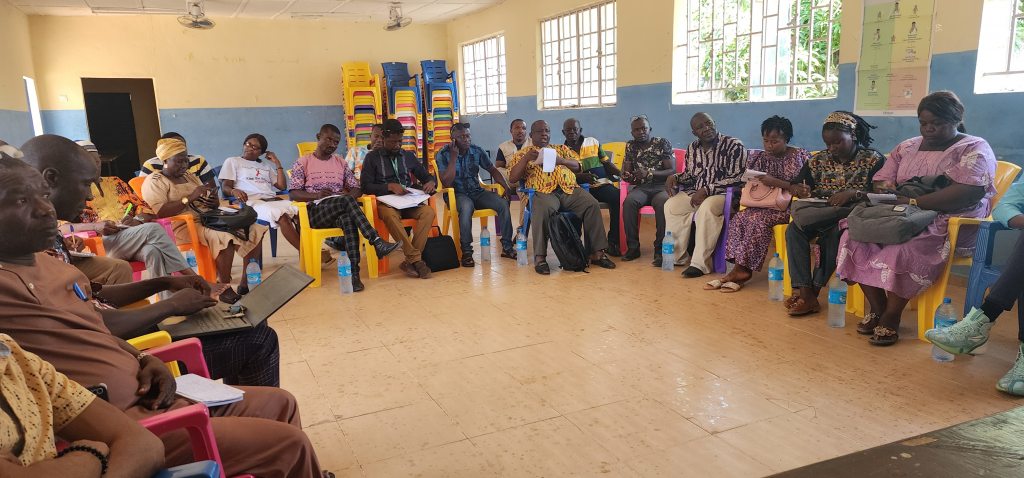Strengthening WASH in Health: Roll-out of Training on WASH FIT in Kono District
As part of the ongoing efforts to improve water, sanitation, and hygiene (WASH) in healthcare facilities, the District Health Management Team (DHMT) in Kono hosts a training session on the Water, Sanitation and Hygiene Facility Improvement Tool (WASH FIT). This intervention forms part of the ongoing FCDO-funded project on Strengthening WASH Systems for Health, currently being implemented in Sierra Leone by GOAL and WASHNet, under the overall leadership of Self Help Africa.
The WASH FIT tool is a practical, risk-based quality improvement instrument developed by the WHO and UNICEF. It provides a structured approach to assessing, prioritizing, and continuously improving WASH services in health care facilities. Key focus areas include water supply, sanitation, hand hygiene, environmental cleaning, healthcare waste management, and facility maintenance, including energy and infrastructure.
During the session, healthcare facility in-charges, local authorities, civil society actors, and implementing partners gathered to review current WASH conditions and identify steps to strengthen systems for better health outcomes.
Speaking at the engagement, Mumin Kallon, a senior official from the Ministry of Health, emphasized the importance of aligning WASH improvements with national standards.
“WASH FIT is more than a checklist – it’s a tool that empowers healthcare workers and managers to continuously improve their facilities. When WASH is strong, health outcomes improve. It’s as simple as that,” he said.
Michael Brassie, Monitoring, Evaluation, Accountability, and Learning Coordinator at GOAL, noted the significance of multi-stakeholder collaboration in sustaining WASH infrastructure in health facilities. “This workshop isn’t just about compliance; it’s about transformation. With the support of FCDO and our partners, we are ensuring healthcare facilities are not only functional but also safe and dignified for patients and staff alike.”
Adding to this, Musa Ansumana Soko, Team Lead at WASHNet, spoke on the community-led approach to driving quality improvements.
“Engagements like these help embed accountability, ownership, and performance into the system. We are proud to support this process across all five project districts—Kambia, Kono, Kenema, Moyamba, and Bombali and we will continue tracking implementation of the various improvement plans across the respective health care facilities.”
This workshop is part of a series of district-level interventions under the Strengthening WASH Systems for Health project. As similar engagements are rolled out in the other project districts, the aim is to ensure that WASH becomes an integral part of healthcare delivery, especially in rural and underserved communities.






